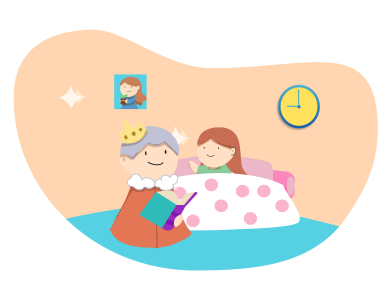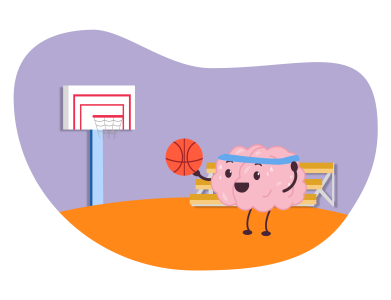
- GRIP Learning's Team
A healthy sense of self-worth—the conviction that you have a right to exist and that you are enough—is your birthright as a human being and is different from self-esteem.
Today you’ll learn about neuroplasticity and the ways to increase it!
Some researchers had previously assumed that during the first few years of life, brain development stopped completely. However, recent studies have revealed that the adult brain can continue to generate new neurons and develop new neural networks.
The term “neuroplasticity” refers to the brain’s inherent flexibility in adapting to new experiences and ways of being in the world. This is something you can maintain physically and practically permanently.

Experiences that are rich, interesting, and new can open the door to high-challenge pursuits that contribute to lifelong learning. Tasks with high levels of difficulty encourage brain plasticity. To help you do this, here are some guides on how to increase neuroplasticity through growth experiences.
Developing your brain’s adaptability requires a shift in how you normally act. And before striking out on any new behavior change, most people often forget the essential step of obtaining clarity. To make any lasting changes, it is essential to have a clear idea of what it is you want to achieve and, more significantly, why.
If you don’t, you’ll likely start and stop working toward your goals, a common tactic among procrastinators.
Determining your core beliefs is crucial. Enhancing your capacity for neuroplasticity depends on several factors, including your values, priorities, and personality. Not only do they encourage you to act in a certain way, but they also give your life genuine significance.
The truth is that modern culture isn’t great at encouraging us to be who we truly are. Which means, you have some priceless aspirations, wishes, and objectives hidden within you.
It’s as if you’ve lost sight of your own interests and passions after years of being taught to prioritize your obligations and the needs of those around you.
Fortunately, it’s never too late to rediscover what really matters to you and to go for the things that fascinate you. Any time in life is a good time to discover what you love and pursue it with all your heart. Increased neuroplasticity and connection in your brain will accompany your revitalized interests.
So, when you’re happy and engaged in activities that truly matter to you, you’re more likely to keep up the positive habits that push your mind and strengthen your neuroplasticity.
The less-good but still-good news is that it is not as easy as it may sound to act in accordance with your basic principles once you have revived them.
However, if you have a clear understanding of your most basic values, you can begin to organize your life so that it reflects those principles. Your ability to boost your neuroplasticity—and the quality of your life—begins with getting your basic beliefs into sync with your decision-making.
After gaining clarity, you’ll have a much easier time identifying the most important objectives to focus on initially. The first step toward lifetime learning success is setting attainable goals. Obviously, enhancing your neuroplasticity is dependent on your commitment to lifelong learning.
Don’t limit your thinking to riddles and logic games. Consider more meaningful experiences that can challenge you and spark your interests if you want to keep your mind active for an extended period.
Having a goal or set of activities that require you to use your motor, auditory, and visual processing centers is like giving your brain a full-body workout. This will strengthen the neural pathways connecting your left and right brains. As a result, you’ll be able to solve more complicated problems, improve your coordination, and foster more plasticity in your brain.
Evaluate your current situation and desired future state in each of the following areas:
Community – Your amount of social engagement with others in your neighborhood, such as friends, family, neighbors, coworkers, and even strangers, has a significant impact on your health and happiness.
Growth – Learning through experiences with other people and engaging in endeavors that push you outside of your comfort zone. Just a few things to think about: In what ways can you challenge yourself to grow personally and professionally? If you could learn anything, what would it be? What are your top priorities for a regret-free existence? What dreams have you had to put away because real life got in the way?
Giving back is excellent for your mental, emotional, and physical health, whether it’s in the form of a legacy, a donation, or the donation of your time and skills. Even simple things like fixing a fence or raking leaves can help you feel like you’re making a difference and give you a sense of direction in life.
Health – Physical and mental well-being are connected, so ask yourself where you are on the importance scale for things like eating right and getting regular exercise.
Budgeting – If money is always a source of anxiety, it’s hard to relax and take pleasure in the other great realms of life.
The key is to take tiny steps every day until you’ve reached your destination. Worse than having too much to do is having a goal that is so broad and vague that you have no idea where to begin achieving it.
First, you can brainstorm a long list of unique ideas on things you can do to get there, which can then serve as the basis for setting up micro-steps toward your goal. A person’s level of originality increases in relation to the number of ideas he or she generates.
After that, not only do you have a written record of your thoughts to work from, but your brain will keep coming up with new ideas and solutions, especially if you organize them according to importance.
When you put your mind to something and really want to do it, the ways to do it magically appear.
Maintaining a diary or log where you record the one action you will take each day to move you closer to your objective is another option. It is critical to push yourself to improve every day. The key to unlocking your superpower lies in incorporating this practice into your morning routine.
It’s important to maintain consistency. Small, daily goals are more manageable than one large goal every few days. If you find yourself falling behind, try breaking down your daily action item even further.
This is how it all connects to improving your brain’s adaptability:
Initially, your brain will record changes, but they will be temporary. You need to consistently push yourself to your limits in order to increase your brain’s plasticity and produce long-term changes in your thought processes.
The development of a growth mindset is an essential first step in developing resilience and perseverance. Carol Dweck conducted extensive studies on the topic of adopting a growth mindset, which is based on “the concept that we can improve our brain’s capacity to learn and solve problems.”
One of the most important aspects of cultivating a growth mindset is being willing to learn and adapt in the face of difficulty.
When pursuing a goal or task with a growth mindset, it’s important to actively seek out and welcome setbacks, “failures,” or painful experiences because they contain invaluable lessons. Everyone has concerns and avoids challenges as a result, but if you learn to aim for the challenges regardless, things will turn out completely differently for you.
Here are three more helpful hints for nurturing a growth mindset:
If you want to develop a growth mindset that will help you learn throughout your life, you need to reward yourself for reaching each milestone with a new one. In doing so, you will be able to relax and take pleasure in the journey.
Becoming more self-aware is crucial to learning any new (and healthy) habit. To put it another way, you’ll be more likely to make value-based decisions—basically, better, more meaningful decisions—once you’re more open to what’s occurring in your brain and mind.
This is of utmost significance when trying to enhance your neuroplasticity and alter established neural processes in your brain. If you’re like the majority of people, you probably do a lot of things on autopilot. So, it may take some practice to remember to activate your prefrontal cortex (the part of your brain that makes decisions) whenever you set out to create a new, positive habit.
Therefore, cultivating a state of mindful awareness is essential to the process of reawakening. Your neuroplasticity will improve as you become more self-aware, which is helpful for making better decisions and devoting more time to the things that matter most to you.
A few suggestions for developing your mindfulness:
Just as quickly, you can start doing things you regret every day. Starting the day off on the right foot with a routine can have a significant impact on the decisions and behaviors you engage in throughout the day. It promotes brain plasticity, or the ability to form new connections between neurons.
The people in your inner circle have incredible influence. You end up becoming like the people you hang out with the most, so choose wisely.
Spending more time with people who share your basic values increases the likelihood that you will have important growth experiences, which in turn increases neuroplasticity.
In order to grow, achieve your objectives, improve your health, and live in accordance with your principles, it’s important to surround yourself with positive, encouraging individuals. It is with these folks that you will find your true passion and professional reputation.
Moreover, spending time with the right people and doing the appropriate things might help you feel more energized and activate your brain’s higher-order thinking and decision-making processes.
When it comes to your mental, emotional, and physical well-being, nothing is more important than spending time with friends and family, and this is especially true as you age. It’s been shown that the brain benefits greatly when a person’s social network is in harmony with their values and long-term goals.
Brain connections are dynamic networks that are constantly strengthening and weakening. It’s not that your brain becomes resistant to change as you age; rather, it’s that your mindset becomes resistant.
To boost your brain’s adaptability, adopt a learning mindset and be open to taking on new challenges of all kinds.




